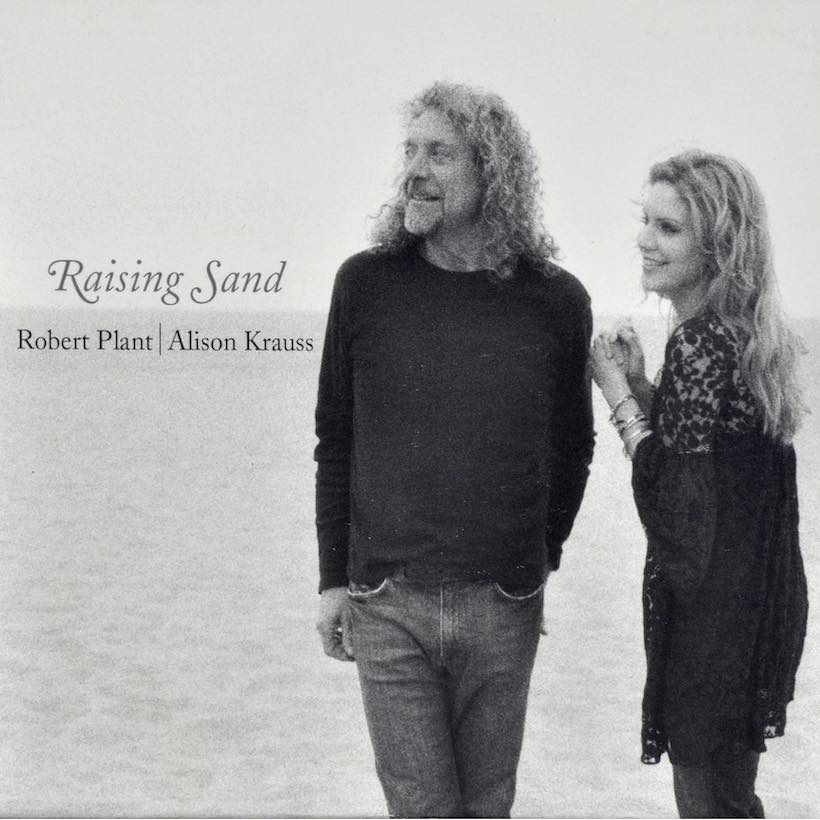A collaboration between the former lead singer of Led Zeppelin and one of the most-awarded Grammy winners in history was always going to be newsworthy. But not even Robert Plant or Alison Krauss themselves could have imagined the worldwide impact that Raising Sand, released on October 23, 2007, would make both on the public and on their careers.
At the 2009 Grammy Awards, the album took Krauss’ tally of wins from 21 to 26 (she subsequently won a 27th, to tie with Quincy Jones as the living artist with the most victories). The record also won CMA and CMT Awards and went platinum in both the U.S. and the U.K., as well as in Sweden. But over and above all of the commercial achievements, Raising Sand was hailed around the world as a creative high point in both of these long and distinguished careers.
The key to the connection that the album made with audiences everywhere was the team around it, headed by the expert production of T-Bone Burnett, and an inspired choice of cover material. Plant, an avowed devotee of American roots music in all its forms, proved to be perfectly matched with Krauss, the artist who has done more to popularise bluegrass than any other in recent decades.
While all of the songs on Raising Sand were covers, many of them would have been unfamiliar to contemporary record buyers, and in any case the imaginative treatments of them took the songs into fascinating new areas. The Everly Brothers’ “Gone Gone Gone (Done Moved On),” for example, adopted a shimmering, almost rockabilly beat, a fine example of the way that Plant and Krauss’ voices dovetailed perfectly. Allen Toussaint’s “Fortune Teller” was given a spare treatment that contrasted nicely with Benny Spellman’s 1962 soul original for the Minit label.
Two Gene Clark songs that he recorded in 1969 with Doug Dillard, in their work as Dillard & Clark, were included, “Polly Come Home” and “Through The Morning, Through The Night.” So were numbers by other great traditionalists such as Townes Van Zandt (“Nothin’’’), country star Mel Tillis (“Stick With Me Baby”) and the opening “Rich Woman,” written by Dorothy LaBostrie, best known as the co-writer of Little Richard’s “Tutti Frutti,” and McKinley Millet.
Among the most effective vehicles for Krauss’ charming delivery was “Sister Rosetta Goes Before Us,” written by singer-songwriter Sam Phillips (no relation to the Sun Records founder of the same name). But one of the most widely-remembered track from the project had Plant covering himself, on “Please Read The Letter,” which he first recorded with Zeppelin colleague Jimmy Page for their 1998 album Walking Into Clarksdale. Both are credited as co-writers with Charlie Jones and Michael Lee.
Listen to more Alison Krauss by following the True Bluegrass playlist.
Krauss and Plant would resume their respective careers after Raising Sand, but it stands as one of the finest albums of the 2000s and a staging post for both of them. In the autumn of 2021, the pair reunited momentously, and again under Burnett’s watchful eye, for the new album Raise The Roof.
Buy or stream Raising Sand.




